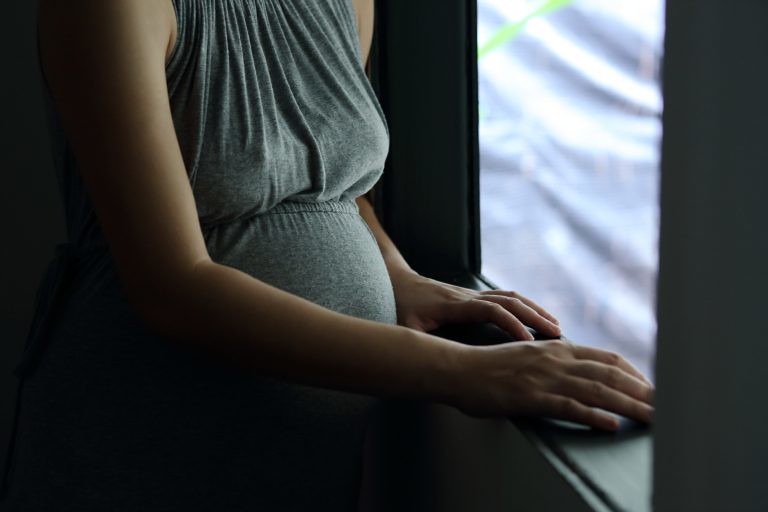A survey from the Royal College of Midwives (RCM) has revealed that midwives across England work around 100,000* extra unpaid hours a week to keep maternity services safe. That’s the message from an RCM survey of its members across England. It paints a deeply worrying picture of workplace conditions and the impact on safety in England’s maternity services, says the RCM.
The survey of just under 4,000 RCM members asked about the situation in their workplace in the first week of March this year.
Almost nine in 10 (88%) had worked additional unpaid hours, with a quarter (25.8%) working at least five hours or more unpaid in the survey week. Extrapolated across the midwifery workforce in England the RCM estimates this means midwives in England worked 100,000 extra hours – unpaid – during the first week of March.
Dr Suzanne Tyler, Executive Director, Trade Union, at the RCM, said: “Report after report have made a direct connection between staffing levels and safety, yet the midwife shortage is worsening and we still have no NHS workforce plan to address it. Staff are desperate to plug the gaps, and they are doing, but they are at the limits of their endurance. The Chancellor has previously agreed with us about the lack of staff and need for investment in maternity services. Now is the time to put his hand in the Treasury pocket and give maternity services the funding that is so desperately needed; for the sake of women using them and the staff caring for them.”
The survey also showed that maternity services are consistently understaffed which is hitting safe staffing levels. Almost nine out of 10 (87%) respondents said their maternity units were not staffed safely in the week of the survey. Worst-hit was Yorkshire and Humber where just over nine out of 10 (90.4%) said staffing was inadequate. England faces a shortfall of around 2,500 full-time midwives, a shortage that has existed for over a decade. The latest annual figures also show that there were 10,000 more births across England between 2020 and 2021. It also comes with increasing demands on services driven by women requiring more complex care and support, says the RCM.
Three-quarters (74%) of survey respondents also said they always or often faced unrealistic time pressures or workloads. This was most prevalent in the North East and London where over three quarters (78%) said this was the case.
The mental and physical health of staff is also being hit by the excessive workload and pressures. Over two-thirds (64%) said they felt burnt out or exhausted at the end of most or all of their shifts. Worryingly, a quarter (26%) reported feeling burnt out or exhausted at the end of every working day. Stress levels were highest in the North East where almost a third (30%) of respondents said they always felt burnt out or exhausted after a shift.
ENDS
To contact the RCM Media Office call 020 7312 3456, or email media@rcm.org.uk.
Notes to Editor
See also the Health and Social Care Committee report on maternity safety published in 2021 at Safety of maternity services in England (parliament.uk) and Expert Panel: evaluation of the Government’s commitments in the area of maternity services in England (parliament.uk).
See also:
- RCM warns of worsening maternity crisis as senior midwife survey shows services at boiling point
- England birth rate rise: 10,000 reasons why investment in maternity services is urgently needed says RCM
- Stalling maternal mortality figures show need for investment in maternity services says RCM
- Four out of five NHS staff say pay is main reason they would quit their jobs (rcm.org.uk)
- RCM Chief Exec warns MPs of ‘fragile’ maternity workforce
- RCM warns of midwife exodus as maternity staffing crisis grows
- Latest CQC survey is a ‘wake-up call’ for the Government say RCM
- Maternity underfunding means care based on what trusts can afford not on women’s safety and needs says RCM
- Government must act now and invest in England’s NHS maternity services and staff says the RCM as ‘crisis’ looms
- NHS maternity staffing crisis putting babies’ lives at risk (rcm.org.uk)
- This is ‘at best foolish and at worst negligent’ says RCM responding to reports of a speech by the Health Secretary
- RCM calls for investment in maternity services as midwife numbers fall in every English region
The Royal College of Midwives (RCM) is the only trade union and professional association dedicated to serving midwifery and the whole midwifery team. We provide workplace advice and support, professional and clinical guidance, and information, and learning opportunities with our broad range of events, conferences, and online resources. For more information visit the RCM | A professional organisation and trade union dedicated to serving the whole midwifery team.
*Please see below for how the RCM calculated the estimate for the number of free hours worked by midwives during the week of the survey.
The RCM used the headcount midwifery workforce figure for this as the respondents were people who worked part-time and full-time. That number in March 2023 was 27, 122.
88.41% of that number is 23,978 (rounded up to 24,000), whom we estimated worked some unpaid extra hours that week.
3 024 worked no extra unpaid hours
17 060 worked up to five hours
4 985 worked five to 10 hours
2 053 worked more than 10 hours
Those numbers round off at 3 000, 17 000, 5 000, and 2 000.
We allotted (a) an estimated 2.5 unpaid extra hours to the 17 060 in the up to five hours group, (b) an estimated 7.5 unpaid extra hours to the 4 985 five to 10 hours group, and (c) 10 hours to the more than 10 group (to be cautious).
So, the sums are:
17 060 x 2.5 = 42 650
4 985 x 7.5 = 37 388
2 053 x 10 = 20 530
The sum total of that is 42 650 + 37 388 + 20 530 = 100,568.


